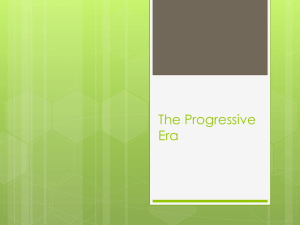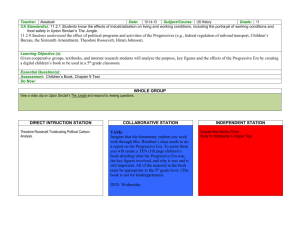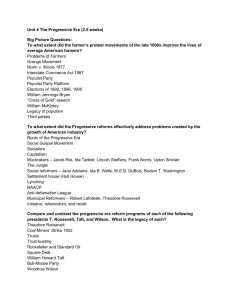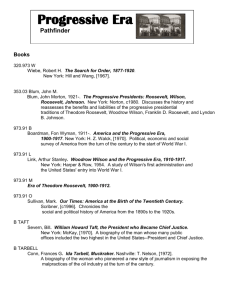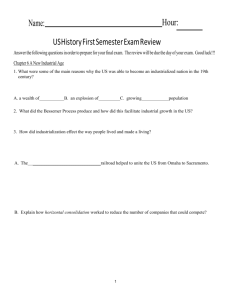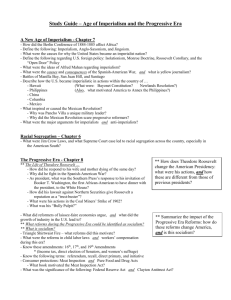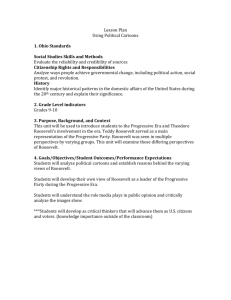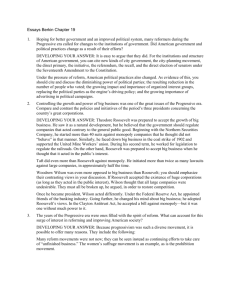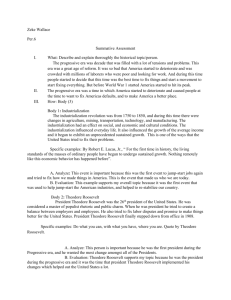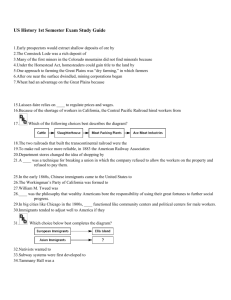roosevelt 19th
advertisement
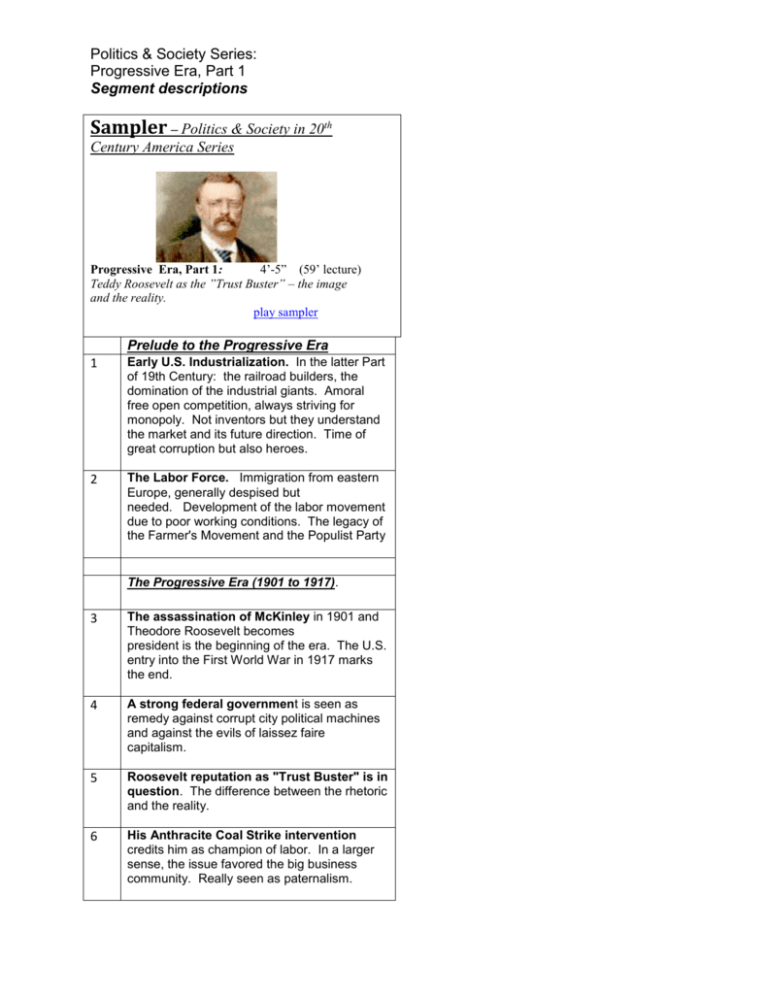
Politics & Society Series: Progressive Era, Part 1 Segment descriptions Sampler – Politics & Society in 20th Century America Series Progressive Era, Part 1: 4’-5” (59’ lecture) Teddy Roosevelt as the ”Trust Buster” – the image and the reality. play sampler Prelude to the Progressive Era 1 Early U.S. Industrialization. In the latter Part of 19th Century: the railroad builders, the domination of the industrial giants. Amoral free open competition, always striving for monopoly. Not inventors but they understand the market and its future direction. Time of great corruption but also heroes. 2 The Labor Force. Immigration from eastern Europe, generally despised but needed. Development of the labor movement due to poor working conditions. The legacy of the Farmer's Movement and the Populist Party The Progressive Era (1901 to 1917). 3 The assassination of McKinley in 1901 and Theodore Roosevelt becomes president is the beginning of the era. The U.S. entry into the First World War in 1917 marks the end. 4 A strong federal government is seen as remedy against corrupt city political machines and against the evils of laissez faire capitalism. 5 Roosevelt reputation as "Trust Buster" is in question. The difference between the rhetoric and the reality. 6 His Anthracite Coal Strike intervention credits him as champion of labor. In a larger sense, the issue favored the big business community. Really seen as paternalism. Politics & Society Series: Progressive Era, Part 1 Segment descriptions 7 Pure Food and Drug Act regulating food production is response to Upton Sinclair's, "The Jungle." The legislation is watered down, actually squeezes out the smaller competing companies. 8 The Age of Conservatism. The era is really a partnership between business and government, although big business is wary of President Roosevelt. Roosevelt Promotes Conservation, especially in the west. Yet giants can benefit because of lack of enforcement and decreased competition from squeezing out of smaller companies 9 President William H. Taft (19031913). Lacks charisma compared to Theodore Roosevelt, but is underappreciated. 10 Woodrow Wilson becomes president in 1912 because of split in Republican ticket. Roosevelt, running as an independent, comes in 2nd,and Taft, the incumbent, comes in 3rd. Eugene Debbs gets 1,000,000 votes. The mood of the electorate is reformist. 11 Wilson’s legislation. Lowers protective tariff, enacts Federal Reserve Act for national banking standards, the Clayton Act to toughen the Sherman Anti-Trust Act. But these are enforced by the Federal Trade Commission whose members are appointed by the president.
